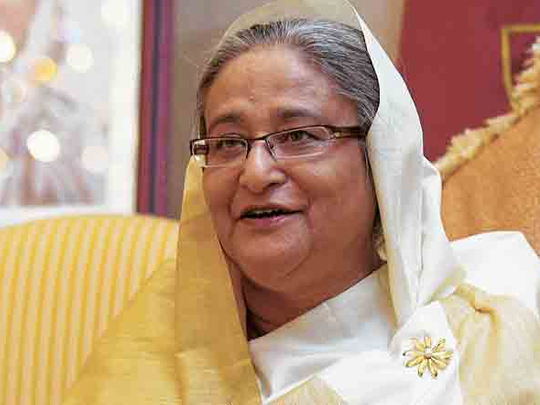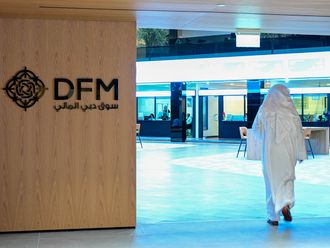
History repeats itself. It also does its rounds in Bangladesh. The difference is no one learns from it, especially the country's politicians. Every five years, the past misdeeds of the previous regimes reappear — almost routinely — to haunt the country's 160 million people. Even as the South Asian nation celebrates the 40th anniversary of Victory Day today, the previous episodes of dirty politics re-surface in different forms, shapes and sizes.
As the country looks forward to its fifth decade with a renewed hope of reducing poverty, a new round of the infamous ‘Battle of the Begums' could derail it from achieving its goals.
Bangladesh's opposition, led by the two-time prime minister Khaleda Zia, has already begun to warm up the streets with agitations and long marches — more than two years before the next general elections due in 2014. This time her main battle line has been drawn on the issue of re-introducing the system of a non-party caretaker administration to ensure free and fair polls, a demand she had earlier vehemently opposed while in power in 1991-1996.
In a country like Bangladesh, issues such as corruption, nepotism, lawlessness, prices of essentials, economy, etc, remain at hand for the opposition parties to top up their list of allegations to gain public sympathy.
Unfortunately, Khaleda was accused of similar issues while in power earlier by her nemesis, the current Prime Minister Shaikh Hasina, who is serving a second term in power. The tone and the language are similar. The only change is in their position — both switched roles.
Opposition parties had never won in elections held under political and military administrations during the first 20 years of Bangladesh's history since 1971. The nine-year military administration of former dictator General Hussain Mohammad Ershad had made a mockery of the electoral process by systemic abuses.
Free and fair polls
That's why, the caretaker administration was introduced to ensure free and fair polls after the fall of Ershad in 1991. Ironically, this reflects an uncomfortable truth — that when it comes to elections, the voters do not trust their leaders. However, the system worked well as it reflected people's choices. Bangladesh has held the last four of the five general elections under caretaker administrations since 1991 led by Supreme Court judges. Power changed hands through ballots, instead of bullets.
Every five years, Bangladesh's electorate stand in long queues to elect a government to help them change their lot, only to be faced by inefficiency, corruption and betrayal. Invariably, half way through the tenure, they see the familiar faces of the previous regime emerge as heroes in a new episode while their elected leaders turn villains.
In the last elections held in December 2008, Bangladeshis voted the Grand Alliance led by Hasina to power with three-fourth majority in parliament. She had made a number of pledges to the public.
To be fair to her, the government has managed to kick-start the trial of the alleged war criminals of the Independence War in 1971, which cost three million lives and the honour of 200,000 women. On top of that, her government had overcome a serious security crisis, when an armed rebellion claimed the lives of 56 army officials in a barrack.
Gains nullified
While it has shown some success in combating terrorism, increasing electricity supply, reducing corruption and e-government services, then rising inflation, stock market crash and increasing food prices have almost nullified these gains.
Three years down the line, Hasina now appears to be losing focus on her election agenda. Instead of sharpening focus on the electoral promises, she continues to accuse the opposition for destabilising the country — sounds almost like a broken record that has been repeated time and again.
What goes round, comes round. This couldn't be better reflected than in Bangladesh. In the musical chair of power, Hasina and Khaleda switched roles four times in the past 20 years.
A free and fair election could only help Khaleda and her son, Tarek Rahman, return to power along with their corrupt colleagues, including those on the run. It could take the country back in history and will not change the fate of the people who deserve better.
In the absence of a third force, a national government led by an honest technocrat is a viable alternative. This could happen if the main stakeholders of power — the people, army, bureaucracy, the media and the civil society — force Hasina and Khaleda to agree to a common minimum programme or a national agenda under a workable formula.
That way, the national government could synergise the strengths of Hasina's Awami League and Khaleda Zia's Bangladesh Nationalist Party to uplift the people from misery.
Time and again, Bangladeshis have successfully brought the country back to the right path. Bangladesh has come a long way from a ‘bottomless basket' to an emerging economy as it moves towards becoming a middle-income country. On its 40th anniversary, Bangladeshis should start looking at the future, not at the bloody past.











